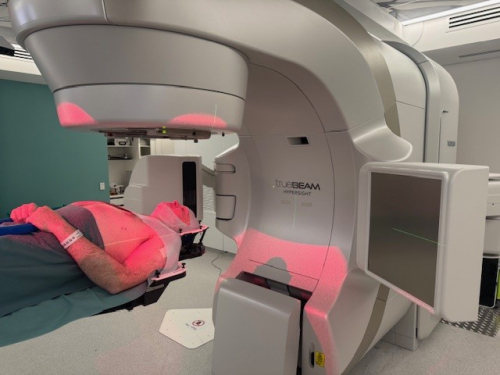Eye-tracking technology trial could revolutionise brain health management

The Alfred hospital has commenced clinical trials with BrainEye, a ground-breaking smartphone app which can help screen for neurological abnormalities using a 60 second eye movement test.
The study aims to recruit 500 participants across Australia with a variety of neurological conditions, including Alzheimer’s, Parkinson’s disease, epilepsy, and multiple sclerosis (MS), who will have their brain function assessed using BrainEye’s eye tracking application.
BrainEye will collect data through its artificial intelligence platform, which measures and compares more than 20 ocular biomarkers that the naked eye struggles to see. The data will then be compared to readings from neurologically healthy individuals to enhance the app’s recognition and understanding of normal and abnormal brain function.
Neurological disorders are the leading cause of disability worldwide, and the second leading cause of death after heart disease, but the ability to detect and treat them is currently hampered by a lack of appropriate and cost-effective biomarkers which measure and monitor change in brain function.
The datasets collected within this trial will assist BrainEye in developing a commercial product that can be used in the community to detect and monitor neurodegenerative diseases. In general, early detection leads to improved treatment outcomes and a reduction in costs, for both patients and the already overstretched healthcare system.
The trial’s Principal Investigator, BrainEye’s Chief Scientific Officer Associate Professor Joanne Fielding, says that eye movement assessments to determine brain function have typically been conducted in a clinical setting, limiting access to the broader community.
“BrainEye’s revolutionary technology is taking complex science and putting it in the hands of anybody who wants to assess brain health. Early detection with any neurological condition is critical, and while the efficacy of eye movement assessments in picking up abnormalities is well recognised, tests are typically only carried out in clinical settings, and often only when it’s too late," Professor Fielding said.
“We’re thrilled to be working with The Alfred neurology team, which is equally passionate about finding new and accessible ways to improve early detection of neurological disorders.”
The Alfred is one of several registered clinical trial sites for the BrainEye study.
Professor Terence O’Brien, Neurologist and Program Director of Alfred Brain, is pleased to be collaborating with BrainEye.
“This innovative technology has great potential to be a practical and efficient tool for early monitoring of disease progression for a variety of neurological conditions.”
BrainEye has undertaken more than 25,000 tests to date and successfully conducted numerous trials with several major sporting codes, with a focus on concussion and brain trauma.
BrainEye CEO, Richard Nash, says the trials are a major step in assessing the feasibility of the BrainEye app in identifying neurological abnormalities and monitoring brain health overall.
“This is an exciting development for BrainEye, as we move from validating its utility in sport settings to its application in healthcare, where we intend to help users identify neurodegenerative diseases such as Alzheimer’s and Parkinson’s.
“We know that the eyes are the window to the brain and our best protection is early detection.”


